What Kind Of Animals Live In Saltwater
Curious Kids is a series for children. If you take a question yous'd similar an adept to respond, transport information technology to curiouskids@theconversation.edu.au You lot might also similar the podcast Imagine This, a co-production between ABC KIDS listen and The Conversation, based on Curious Kids.
How practice body of water creatures stand the salt? - Marshall, historic period 9, Murrumbeena.
Everything in our bodies is made of cells. And these cells demand chemicals, such as salt, in and effectually them to work properly. The chemical balance needs to exist just correct.
If we don't go enough salt, a lot of our cells won't piece of work. Merely too much salt? That's also a problem.
Drinking enough fresh water will help dilute the table salt in our bodies. And depending on what and how much nosotros eat and drink, our kidneys will remove excess salt and put it in our urine so we tin get rid of it.
Nevertheless, our kidneys can only process pocket-size amounts of salt. If we drank a lot of salty seawater, we'd experience ill and could even die.
Sea animals and sea common salt
Animals that live in the ocean cope with seawater in different ways, depending on how much common salt their bodies can withstand.
Some animals, such as ghost shrimps, tin have in big amounts of salt and volition maintain a rest similar to the h2o around them.
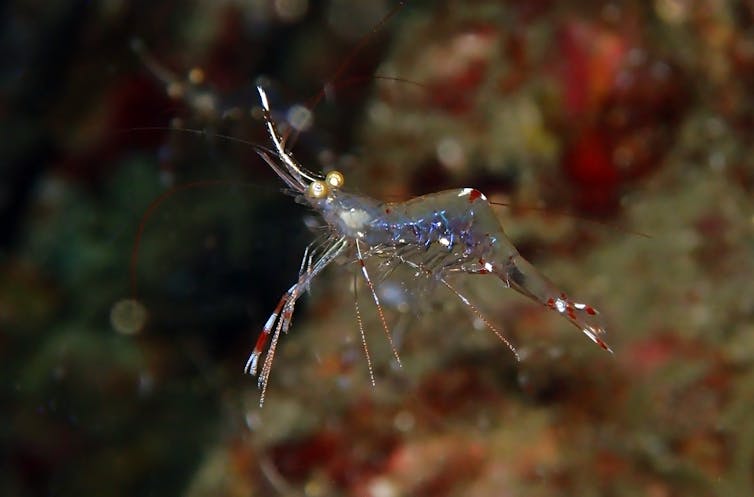
They tin exercise that fifty-fifty when they are in water that is saltier than seawater.
Animals that do this are known equally "osmoconformers", and the cells in their bodies can withstand big changes in salt concentrations.
They don't necessarily drink seawater the way we practice, only they can suck water and common salt through their skin via processes called osmosis and improvidence.
Many invertebrates (animals without backbones, such as jellyfish) survive in salty water like this. They can cope with a level of saltiness that would be unsafe for us.
Withal, even these animals have their limits. And if the salt concentrations in their bodies go too high, they need to move to less salty water or they volition die.
Baca juga: Curious Kids: What body of water creature tin attack and win over a blueish whale?
Fish and some invertebrates such as some body of water snails demand to maintain common salt concentrations that are less than seawater.
Fish tend to accept concentrations that are about a third of that of seawater. They have adult ways to manage the amount of table salt in their bodies and are known as "osmoregulators".
When a fish drinks sea h2o, its kidneys (like ours) removes excess salt and gets rid of it via their urine. They tin can as well get rid of salt via their gills, and fifty-fifty their peel.
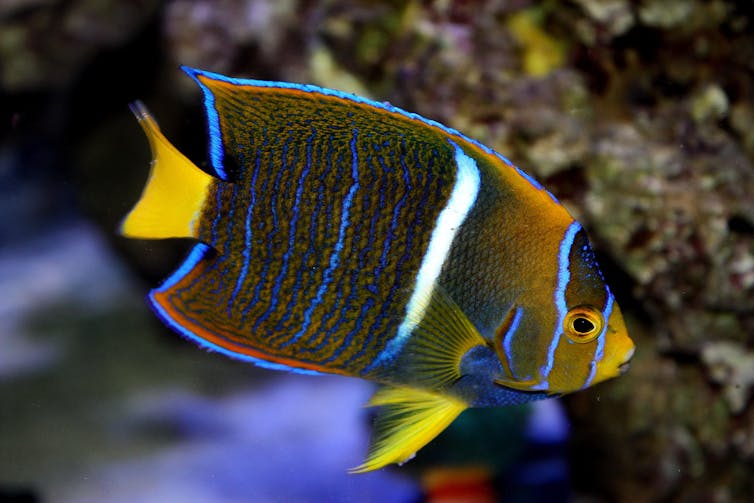
Merely different fish have different limits. Some saltwater species, if they are trapped in more salty h2o, volition die.
Others can live quite happily in saltier h2o, but even these volition dice if they get trapped in really salty water.
Freshwater fish have a different problem
Fish that live in freshwater have the opposite problem. Their bodies have higher levels of salt compared to the water that surrounds them. These fish needed to evolve a mode to stop the salt leaking out of their bodies and into the water.
They do this past eating foods that have common salt in them and drinking lots of h2o and keeping as much table salt equally they tin in their bodies.
They also actively absorb a small amount of salt from the surrounding water through the gills and skin. If you motility these freshwater fish into the body of water, notwithstanding, they would get very sick and dice.
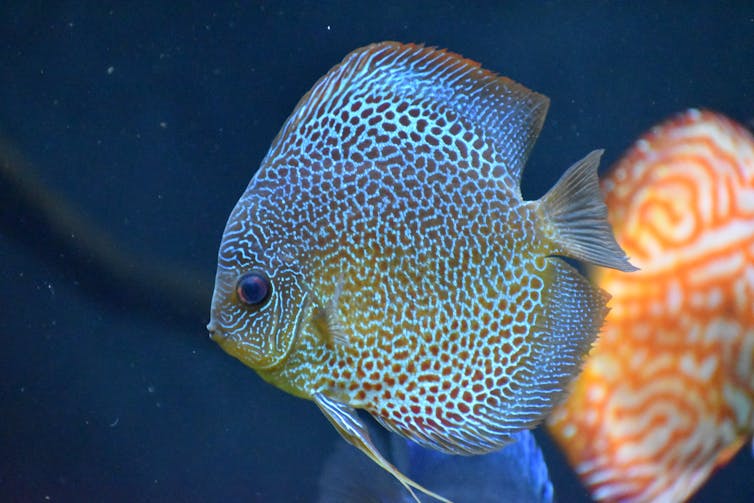
Seabirds and turtles
Seabirds and turtles as well need to remove common salt from their bodies, but they have what we call "glands" to help.
Glands are special organs in their heads that aid remove the salt. If you look at seabirds closely, they dribble h2o out of their beak nostrils. This h2o is very salty.
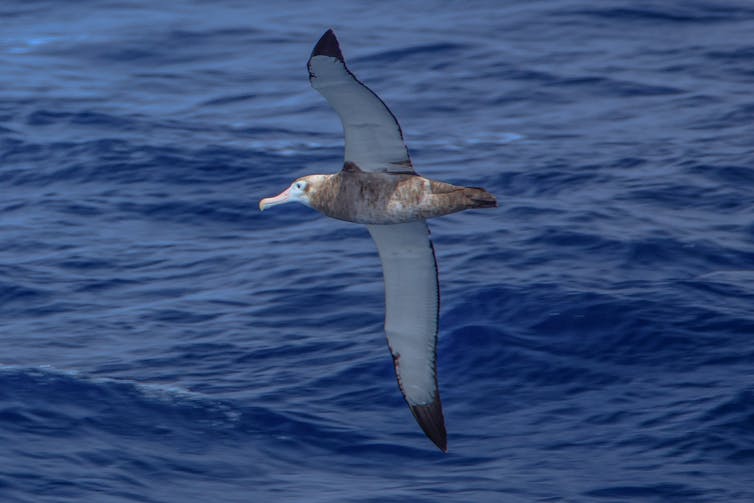
Turtles remove the excess table salt from the eyes, which is why they sometimes look like they are crying.
And seabirds and turtles too have kidneys that remove common salt in the same way that fish do.
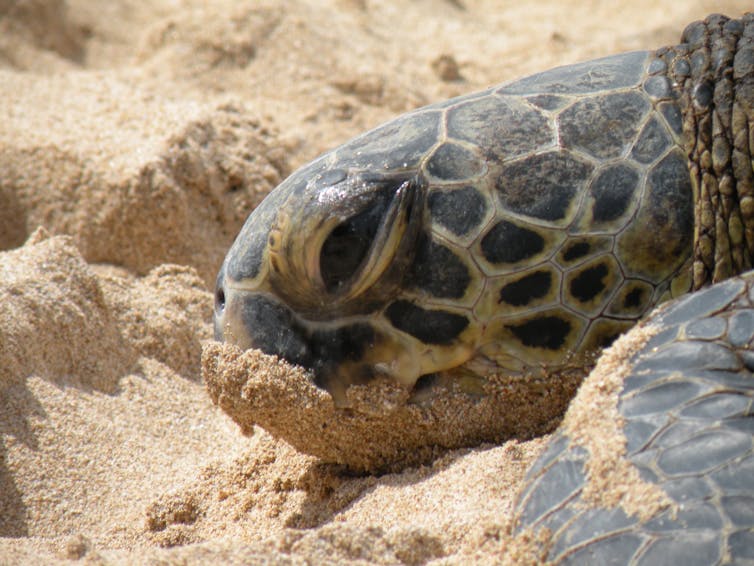
So, the reason marine animals don't get sick when they drink seawater is because the species have lived in marine water for a very long time and are adjusted to living in that environment.
It comes down to what levels our bodies have evolved to cope with.
Baca juga: Curious Kids: Why practise you glimmer when there is a sudden loud dissonance shut past?
Hello, curious kids! Have yous got a question you'd like an expert to answer? Inquire an adult to send your question to curiouskids@theconversation.edu.au

Please tell us your proper noun, historic period and which city you live in. We won't be able to answer every question but nosotros will do our all-time.
Source: https://theconversation.com/curious-kids-how-do-sea-creatures-drink-sea-water-and-not-get-sick-110979
Posted by: smithdonvorged.blogspot.com


0 Response to "What Kind Of Animals Live In Saltwater"
Post a Comment